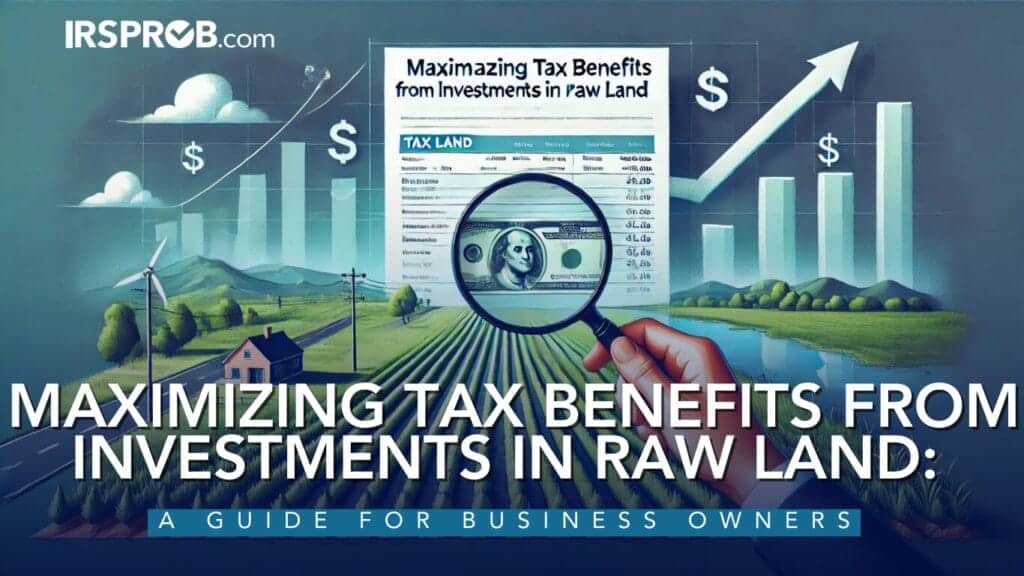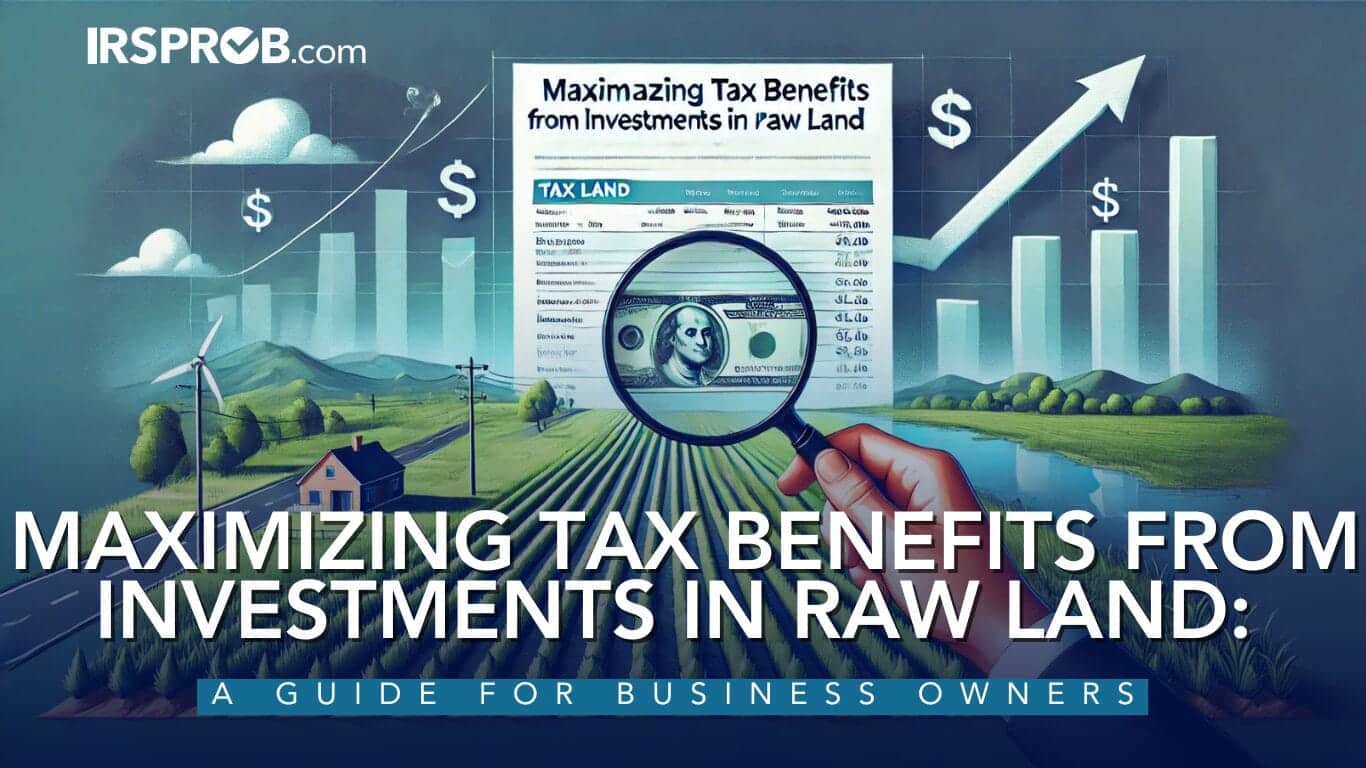
Investing in raw land can be a strategic move for business owners looking to diversify their portfolios. Raw land, which refers to unimproved land without any buildings or other structures, is often more affordable than developed property. However, the tax benefits associated with owning raw land are more limited compared to other types of real estate investments. Understanding these limitations and how to maximize available deductions is crucial for optimizing your investment’s profitability.
Key Tax Deductions for Raw Land Investments
1. Property Taxes
As a land investor, you can deduct property taxes paid on your raw land. This deduction is available as a personal itemized deduction on Schedule A of your tax return. It’s important to note that this deduction is not subject to the $10,000 cap that applies to property taxes on personal residences, which was introduced by the Tax Cuts and Jobs Act (TCJA) and is in effect from 2018 through 2025.
Example: If you pay $15,000 in property taxes on your personal residence and $5,000 on raw land, you can only deduct $10,000 for your residence. However, you can deduct the full $5,000 paid on your raw land without any limitation.
2. Interest Expenses
Interest paid on loans used to purchase raw land can be deducted as investment interest on Schedule A. However, this deduction is limited to your net investment income for the year. Net investment income includes income from taxable interest, ordinary dividends, and short-term capital gains, but it excludes qualified dividends and long-term capital gains unless you elect to treat these as ordinary income. Excess interest expenses can be carried forward to future years.
Example: If you pay $2,000 in interest on a loan for raw land and earn $1,000 in net investment income, you can only deduct $1,000 of the interest expense in the current year, with the remaining $1,000 carried forward.
3. Other Non-Deductible Expenses
Unfortunately, carrying costs such as legal fees, accounting fees, insurance, and travel expenses related to raw land are not deductible during the 2018-2025 period due to changes brought by the TCJA. These expenses were previously deductible as miscellaneous itemized deductions to the extent they exceeded 2% of your adjusted gross income. Although these deductions are scheduled to return in 2026, Congress may extend the current limitations.
4. Land Preparation Costs
Costs associated with preparing the land, such as grading, clearing, and landscaping, are generally not depreciable if they are directly tied to the land itself rather than to any structures. These costs must be added to the land’s basis, which will reduce your taxable gain when the property is eventually sold.
Example: If you spend $10,000 on land preparation that is not associated with a specific building or structure, you must add this amount to the property’s basis, which will lower your capital gains when you sell the land.
What If You Don’t Itemize?
If you do not itemize your deductions, you cannot deduct property tax and interest expenses. However, you can elect to capitalize these expenses, adding them to the land’s cost basis. This election must be made annually and can help reduce taxable profit when you eventually sell the property.
Example: If you purchase a lot for $10,000 and capitalize $2,000 in carrying costs each year for four years, your adjusted basis in the lot will be $18,000. If you sell the lot for $20,000, your taxable gain would be $2,000 instead of $10,000, saving you a significant amount in capital gains tax.
Conclusion
Investing in raw land can offer a range of benefits, but understanding the tax implications is essential for maximizing your investment’s profitability. By being strategic about deductions and understanding the limitations, you can optimize your tax situation and make the most of your investment.
For business owners considering an investment in raw land, it is advisable to consult with a tax professional to navigate the complexities of tax deductions and ensure that you are taking full advantage of all available benefits.








